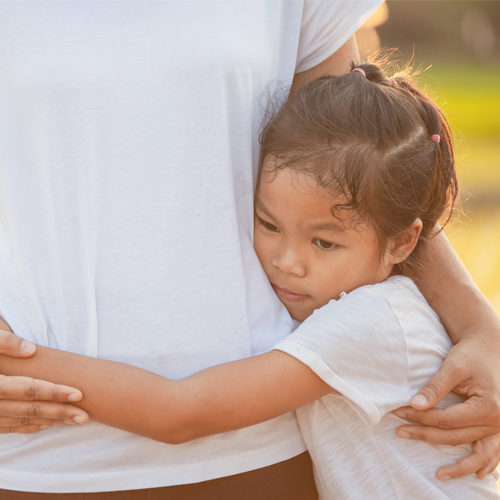How to ease your child’s separation anxiety

It’s just natural for your child to feel anxious and cry whenever you are leaving them — after all the child’s life depends on your presence.
This fear is often called separation anxiety and although it is perfectly natural, you may find it unsettling. To prepare you and your child for this important step to independence, here are some facts about separation anxiety and how to make your child more comfortable when saying goodbye.
Why do children feel separation anxiety?
For millions of years children were brought up in big families and spend all their childhood among their parents or other members of their kin — hence the saying it takes a village to raise a child. The fact that parents in modern societies often raise their children in small apartments and then outsource education to strangers is relatively new and highly unnatural. This means that children are genetically programmed to be afraid when left with someone they don’t know — they may well be eaten alive. In fact, for a 2-year old, there might be no difference to be left with a new nanny or a wild animal, since both don’t smell like mommy, nor look like mommy, or provide the milk that mommy did provide. It’s, hence, just healthy for any child that’s left alone to cry as loud and long as they can to signal their family where they can be found.
When do children develop separation anxiety?
Separation anxiety can only start after a child has developed a sense of object permanence — the realization that things exist even when they’re out of sight. This usually happens between 4 – 7 months of age. Once this happens, your baby can tell when you are gone. However, most babies develop separation anxiety just before their first birthday and some children start demonstrating it around age 2.
By the time the child is up to 3 years of age, they may start getting used to your absence, but that doesn’t mean that they are not afraid of watching you leave. You may want to know that it’s not every child that will manifest separation anxiety. Some may only show it after it was triggered by a big change in their life, such as a new preschool, a new sibling, or moving to a new place.
How to ease separation anxiety:
- Schedule separations after naps or feedings: Kids are more likely to have separation anxiety when they’re tired or hungry, which makes sense because, at that moment, they are more dependent on your presence and protection. So, try to schedule separations after naps and feedings.
- Allow your child to learn that you come back: It’s important for your child to learn that you come back. And since their memory is still under development, you should start with very short leaves, such as five minutes. Once your child learns that you come back after 5 minutes, leave for 15 minutes next time. Then try an hour, and then two.
- Make your goodbye rituals quick: No matter how you want to get your baby ready before you leave, keep your goodbye rituals simple, fast, and sweet. It could be a simple kiss and a wave of the hand — the longer the transition time, the more the anxiety. Do not perform your goodbye ritual and then stay — this just confuses your child and makes everything worse
- Keep your promise: If you promise your child that you will be back at a particular time, make sure you keep your promise. When you don’t keep your promise, your child will likely have more problems next time you want to leave. In addition, they may even develop general pessimism and trust issues later in life.
What if the anxiety persists
It’s rare for separation anxiety to persist in children who were brought up in a safe and loving family. But if you think your child isn’t outgrowing it, you may want to speak to a child therapist or specialist who might be able to help you understand why your child has such a strong fear of being left alone. An insecure attachment style might be one reason.
Verified:
Dr. Ketsupa Jirakarn (Mental health specialist) (31 March 2021)



